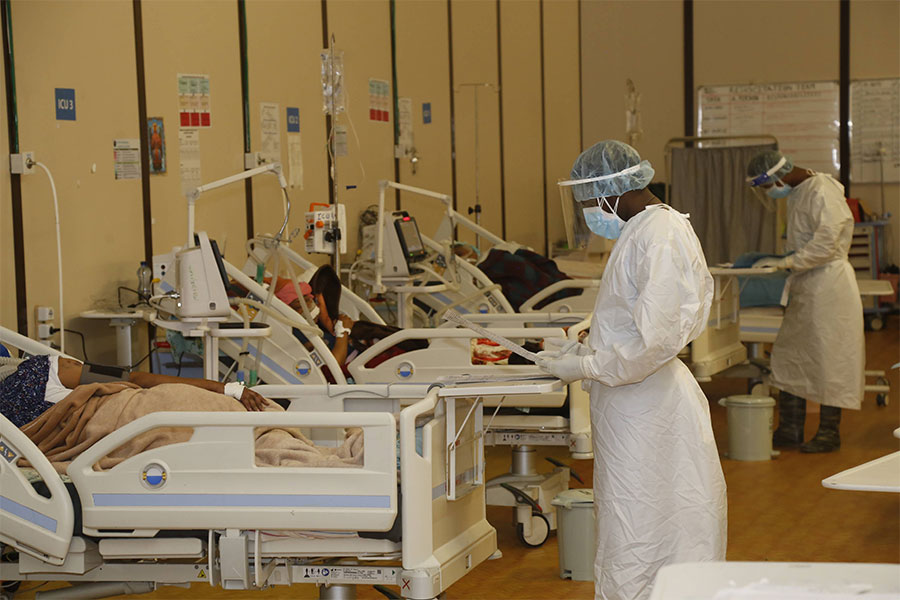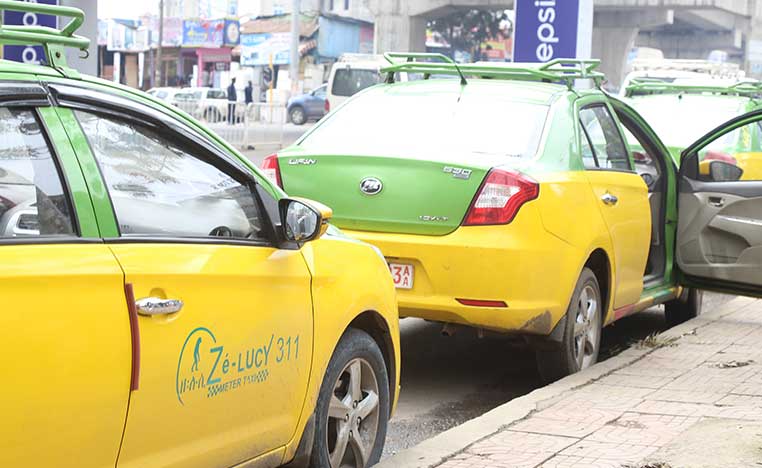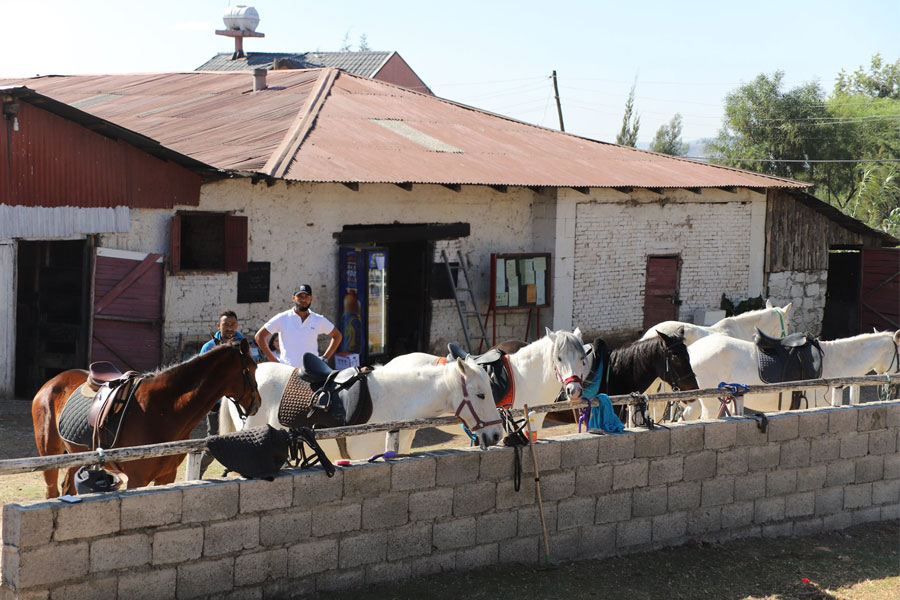
Apr 17 , 2021
By Mokrane Sabri
With improved governance to create a pipeline of investable opportunities, backed up by an enabling environment for responsible private sector investment throughout the value chain, Mokrane Sabri, a senior trade manager with 13 years of experience in the shipping industry, opines what increased focus on Africa’s Blue Economy could do for the continent.
Africa is a complex continent. It is an eclectic mix of authoritarian regimes — where leaders have been in power for many decades; countries that are attempting to make their way towards democracy — even if progress is incremental and slow; and others that have had a stronger semblance of democracy for many years — though in honesty, they are still trying to find their feet.
As beautiful as Africa is, it is scarred by war, tainted by corruption and, in many instances, lacking in transparency. For years, there have been numerous attempts to bring the continent together to create a continent-wide common market — a free trade area where all can benefit, but the attempts have yet to gain serious traction. For a cohesive effort, one needs a common understanding and the ability to find common ground to make decisions for the greater good of the continent, rather than just one’s country.
With such diverse politics and governance, however, that is not easy to achieve. It is one reason there are many regional economic communities and why many countries belong to more than one. There are eight recognised by the African Union and a further seven that are not. Overlaps occur in each. Thus far, the most successful attempt at uniting sub-Saharan Africa has been the African Continental Free Trade Area (AfCFTA), which started trading on the first day of 2021.
AfCFTA presents enormous opportunities for Intra-African trade on the continent. It is about driving the continent’s agenda for growth, rather than individual country’s designs. Intra-Africa trade has increased to 15.4pc over recent years. However, Asia and Europe are still the continent’s main trade partners.
Greater focus needs to be placed on raising Africa’s percentage of world production, which is currently 2.9pc, and world trade, which is currently 2.6pc. Unfortunately, many African countries have low performance in trade facilitation indicators, scoring low in e-commerce; linear shipping connectivity; and doing-business indicators. Lack of transparency and perceptions of corruption are also hindrances to intra, and inter-continental trade and sub-Saharan Africa is currently the lowest-performing region on Transparency International’s 2020 report.
To reach full capacity, Africa needs to look at alternative approaches to increasing revenue. In 2008, Seychelles President James Michel shifted his country’s strategic focus to what has become known as the Blue Economy. The World Bank defines this as the sustainable use of ocean resources for economic growth, improved livelihoods, and jobs while preserving ocean ecosystem health. While it is a concept that has been embraced globally, we are falling far behind on the continent where the idea was born.
The African Union (AU) has designated the years 2015 to 2025 as ‘The Decade of African Seas and Oceans,” and in February 2020, it launched the African Blue Economy Strategy in Addis Abeba. The Southern African Development Community, the Common Market for Eastern & Southern Africa (COMESA), and the Indian Ocean Commission also recognise the potential of the Blue Economy as a lever of socio-economic development in their strategic documents.
Maritime zones under Africa’s jurisdiction total about 13 million square kilometres, including territorial seas and Exclusive Economic Zones and approximately 6.5 million square kilometres for the continental shelf (for which countries have jurisdiction over only the seabed), according to the United Nations. The continent, therefore, has a vast ocean resource base that can contribute to sustainable development. To realise it, countries across the continent will need to collaborate, across borders and sectors on a scale they have not been previously achieved. The largest sectors of the current African aquatic and ocean-based economy are fisheries, aquaculture, tourism, transport, ports, coastal mining and energy.
As PricewaterhouseCoopers (PwC) has highlighted, African ports represent gateways for the continent’s commodity exports. But as countries grow and develop, ports are also essential for sustaining and improving more robust and diverse economic growth through the import and export of manufactured goods and other products.
In Strengthening Africa’s Gateways to Trade, PwC’s analysis showed that based on the degree of port centrality (shipping liner connectivity), the amount of trade passing through a port, and the size of the hinterland, Durban (South Africa), Abidjan (Cote d’Ivoire) and Mombasa (Kenya) are most likely to ultimately emerge as the major hubs in Southern Africa, West Africa and East Africa, respectively.
The report stated that the closest rivals to these ports are Lagos-Apapa (Nigeria) and Tema (Ghana) as alternatives to Abidjan, and Djibouti and, to a lesser extent Dar es Salaam, to Mombasa. Due to their better operational performance, both Lagos-Apapa and Tema pose significant challenges to Abidjan’s emergence as a hub, which might eventually be decided on factors such as political stability, port performance and quality of inland connections.
Improving port performance could increase GDP by two percent. An efficient port reduces delays to shippers, reduces overall logistics costs, and improves the reliability of goods in transit. Yet across Africa, investment in port infrastructure and expansion has slowed.
African governments can significantly impact the investment environment, and investors will look to the way they are planning, regulating, owning, and operating their ports.
They will also take the country’s stability, security, and perceived corruption levels into account. Experienced investors will certainly consider how individual governments have handled foreign inbound investment previously, and if there is not a favourable investment environment, it is not likely that inbound investment targets will be met.
This is particularly relevant at a time when the continent is seeing a high rate of election-related violence, there is much questioning of the legitimacy of election results, and accusations of corruption abound. There are thirteen national elections due to take place in 2021, a third of which take place in the Horn of Africa.
Speaking of the Horn, Djibouti’s port is located on Africa’s East coast – nestled in the Horn of Africa between Berbera and Massawa. As a potential rival to Mombassa for an African hub, Djibouti’s ports have undergone some expansion in the past.
The country has already benefitted from investment from China, using the capital for port and infrastructural investments. In fact, the state-owned China Merchant Group acquired a 23.5pc stake in Djibouti port in 2008, and is also trying to get a 40pc stake in the Ethiopian Shipping and Logistics Enterprise (ESLSE), according to PwC. To continue patrolling East Africa's waters and to protect its investment in Djibouti, China inaugurated its first overseas military base in 2017 alongside the bases of the United States, France, Italy, Spain, Germany, and Japan.
The World Bank’s Economic Transformation in Djibouti report highlights key measures for improving its appeal to foreign investors including: lowering the cost of production factors, namely electricity, ICT, as well as labour costs, to raise competitiveness; further easing access to finance; levelling the playing field to enhance competition; and reforming the tax system to make it more equitable across firms.
Enticing future foreign investment may prove difficult though, as investors will look to the past two years that DP World has spent in court attempting to secure a return on their investment in the Doraleh Container Terminal, which the Djiboutian government seized in 2018. The action was found to be illegal by the London Court of International Arbitration and the High Court of England and Wales, however, the Djiboutian government has failed to abide by the many court rulings and restore DP World’s full rights under the concession agreement of 2006.
Indeed, it will be interesting to see the outcomes of all of 2021’s elections. The one in Djibouti has already been decided in favour of the incumbent, President Ismail Omar Guelleh, suggesting the continuation of policies.
Will the leadership remain the same in other countries, or will it change, and if it does, will it make a tangible difference in uplifting the countries that do bring in a new order? Will we see changes in strategic economic approaches this year, and will concrete steps be taken to grow each country’s Blue Economy? And will the initialising of the AfCFTA be the start of growth across the continent?
The World Bank states that the Blue Economy represents roughly 5.4 million jobs and generates a gross added value of almost half a trillion euros a year in Europe. Opportunities do abound in Africa, but it is as yet not nearly fully realised. What is needed is investment in improved governance to create a pipeline of investable opportunities that benefit both local and national economies, which is backed up by an enabling environment for responsible private sector investment throughout the value chain. Just imagine what increased focus on Africa’s Blue Economy could do for the continent.
PUBLISHED ON
Apr 17,2021 [ VOL
22 , NO
1094]


Commentaries | Feb 19,2022

Agenda | Sep 18,2021

Commentaries | Dec 16,2023

My Opinion | Apr 20,2019

Fortune News | Sep 21,2019

View From Arada | Mar 16,2024

Advertorials | May 27,2024

Viewpoints | Sep 28,2019

Radar | Nov 20,2023

Editorial | Nov 30,2024

My Opinion | 131665 Views | Aug 14,2021

My Opinion | 128030 Views | Aug 21,2021

My Opinion | 125993 Views | Sep 10,2021

My Opinion | 123614 Views | Aug 07,2021

Dec 22 , 2024 . By TIZITA SHEWAFERAW
Charged with transforming colossal state-owned enterprises into modern and competitiv...

Aug 18 , 2024 . By AKSAH ITALO
Although predictable Yonas Zerihun's job in the ride-hailing service is not immune to...

Jul 28 , 2024 . By TIZITA SHEWAFERAW
Unhabitual, perhaps too many, Samuel Gebreyohannes, 38, used to occasionally enjoy a couple of beers at breakfast. However, he recently swit...

Jul 13 , 2024 . By AKSAH ITALO
Investors who rely on tractors, trucks, and field vehicles for commuting, transporting commodities, and f...

Jun 28 , 2025
Meseret Damtie, the assertive auditor general, has never been shy about naming names...

Jun 21 , 2025
A well-worn adage says, “Budget is not destiny, but it is direction.” Examining t...

Jun 14 , 2025
Yet again, the Horn of Africa is bracing for trouble. A region already frayed by wars...

Jun 7 , 2025
Few promises shine brighter in Addis Abeba than the pledge of a roof for every family...

Jun 29 , 2025
Addis Abeba's first rains have coincided with a sweeping rise in private school tuition, prompting the city's education...

Jun 29 , 2025 . By BEZAWIT HULUAGER
Central Bank Governor Mamo Mihretu claimed a bold reconfiguration of monetary policy...

Jun 29 , 2025 . By BEZAWIT HULUAGER
The federal government is betting on a sweeping overhaul of the driver licensing regi...

Jun 29 , 2025 . By NAHOM AYELE
Gadaa Bank has listed 1.2 million shares on the Ethiopian Securities Exchange (ESX),...